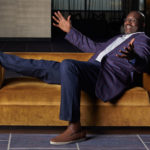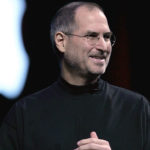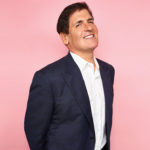When Simon Sinek speaks, he’s quite convincing. It’s not just that he looks and sounds so smart. Alhough his spiked hair and thick-framed glasses do sort of make him look like a cartoon avatar for a modern brainiac, and his ever-so-slight British lilt does kind of imbue him with an extra air of sophistication. It’s that he’s always careful with his words and thoughtful about the way he presents them. Whether he’s talking about the chemicals in your brain or what he learned from his barista or how longtime General Electric CEO Jack Welch cast a plague upon modern society, Sinek’s arguments are informed by scientific research and his voice has all of the flair of a Juilliard-trained thespian.
Last winter, a video of Sinek talking about millennials went viral, racking up tens of millions of views on both Facebook and YouTube in a matter of days. It was shared by both older generations and millennials themselves. In an age of infinite distractions, getting millions of people to sit still and watch someone talk for 15 minutes is no small feat. (Some versions of the clip are even longer.) But Sinek deploys the perfect blend of humor, compassion and blunt, resonating truth.
Related: Simon Sinek on the Millennial Question
At 43 years old, he’s one of the nation’s most sought-after leadership consultants. His 2009 TED Talk is the third most popular of all time. He’s written three best-selling books—another book due out soon—and he’s worked with everyone from the military to massive international conglomerates to members of Congress. Only recently, though, has he turned his attention to what he calls the Millennial Question.
That’s what he’s addressing in that viral video. The clip begins with Sinek listing a lot of the stereotypical complaints about the generation born in and after the early 1980s: “They’re accused of being entitled and narcissistic and self-interested and unfocused and lazy,” he says to an audience of mostly young people who alternate between snickering and staring, transfixed. “But entitled is the big one.” He explains that millennials were subject to “failed parenting strategies.” They were given participation trophies—“a medal for coming in last”—and they were constantly told they were special.
This, he postulates, has made millions of young people ill-equipped to deal with the brutal realities of the working world. And as a result, this generation has turned to social media for fiendish escapism—the way an alcoholic turns to the bottle, Sinek says—and that has led to more people struggling with personal relationships and job fulfillment.
As he explains it in the video, the audience nods along. It all makes so much sense.
But now he’s sitting on a couch in the living room area of a suite in a luxury hotel, next to a window overlooking downtown Dallas. He’s in town to talk about leadership to thousands of managers at American Airlines, but at the moment he and I are talking about the assessments he made in that video.
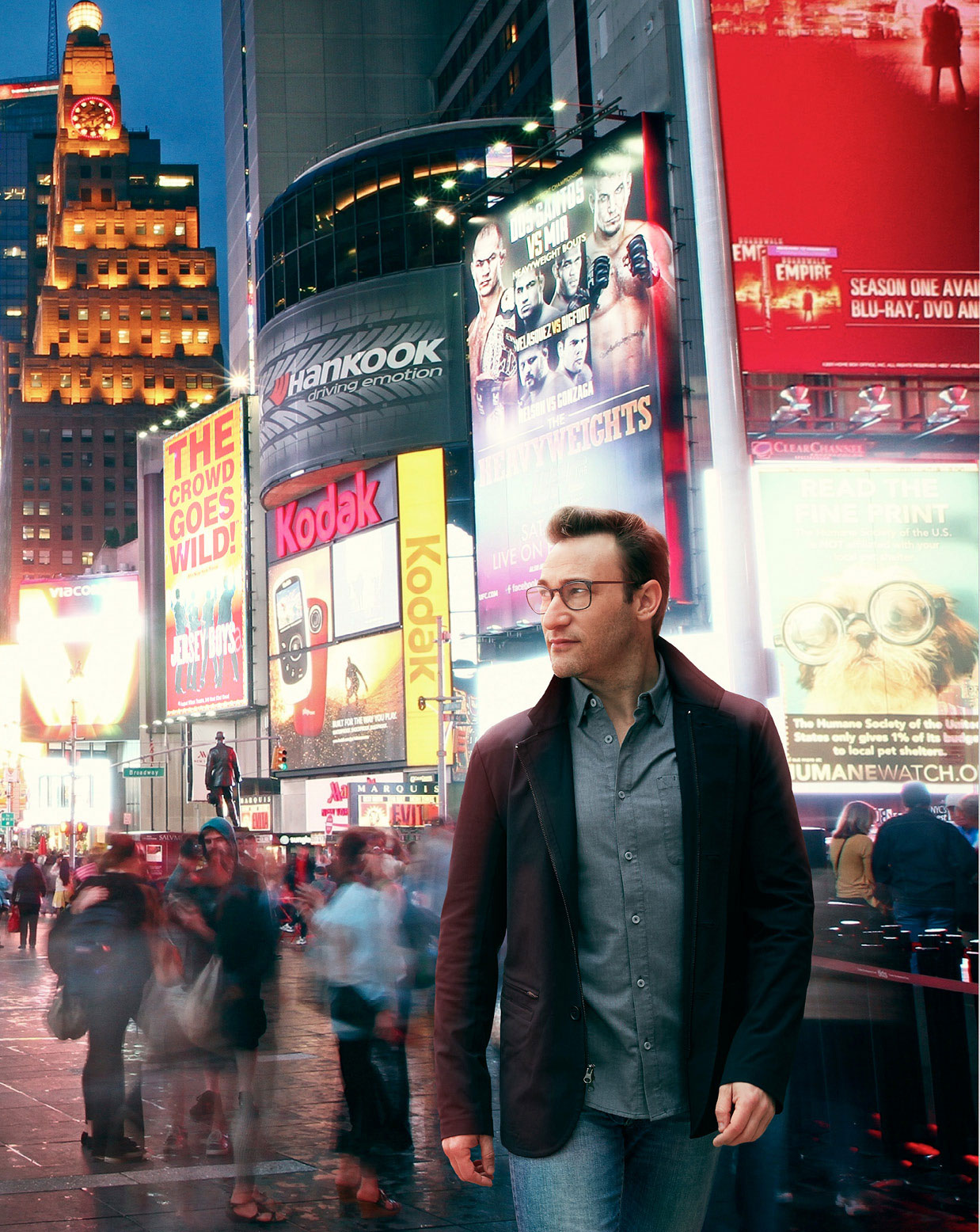
ROBERT ASCROFT; BACKGROUND: PESHKOV/123RF STOCK PHOTO
I mention that I was born in the early ’80s. I was often told I’m special. And I got at least a few participation trophies as a kid. I tell him I was always able to distinguish those from the bigger trophies I got on other occasions, when I’d actually won something. (Or, more likely, got second or third.) I tell him I think it’s one of those things the generation gets a bad rap for, and that millennials are all different—which I concede even as the words leave my mouth, sounds like a very millennial thing to say.
“There are things that happen in the formative years of our lives that affect the way we view the world.”
Sinek, amused by the irony, emits a high-pitched cackle. “Of course people are all different,” he says. “However, there are things that happen in the formative years of our lives that affect the way we view the world. You can say that of every generation. So if you grew up in the Great Depression and during the Second World War, you’re probably a little miserly. You grew up during rations. If you’re a baby boomer, your formative years were during the Vietnam War and Richard Nixon. Of course you’re cynical of power.”
He says there are certain patterns that are “absolutely legitimate and fair across a generation because a generation came of age when certain things were happening in the world.” With millennials, he says, the world was altered by technology. “Access and connectivity didn’t exist before. And it absolutely affected the way a generation sees the world. Every kid? Of course not. But if we weren’t able to make generalizations, we wouldn’t have fields like psychology or sociology. Of course you can make generalizations about human behavior. Is it absolute? Of course not.”
Within minutes I forget whatever point I was trying to make about trophies not ruining kids, and now I’m re-evaluating not only my generation, but my own life and the way I form relationships.
Like I said, he’s very convincing.
***
Before he comes out, half a dozen people warm up the crowd, firing T-shirt cannons. Hundreds of middle-managers from the world’s largest airline stand up with their hands the air, reaching for the flying shirts. Then Sinek walks out in a stylish gray jacket, designer blue jeans and skater shoes, with a headset microphone wired over his right ear. He forgoes introductions and starts instead with a story.
We’re in a massive hotel ballroom, with rows and rows of tables and mugs and lanyards, and a stage at the front of the room painted with the American Airlines logo. In the lobby, greeting attendees, is a scale model of a new Boeing 777. Sinek says the company brought him in to help change the corporate culture. In front of him is a room full of airline employees who supervise other airline employees, but Sinek’s story, similar to a TED Talk he gave in 2014, is about something that happened in Afghanistan in 2009.
A column of American and Afghan troops was moving through a valley when it was ambushed. Army Capt. William Swenson would eventually be awarded the Medal of Honor for his actions that day, repeatedly running through enemy fire to rescue the wounded and recover the dead. One of the rescues happened to be caught on the camera of a medevac pilot, Sinek explains, and what was captured on video is extraordinary. As Swenson loads the fatally wounded soldier onto the helicopter, right before returning to battle, he leans over and gives the man a gentle kiss on the head.

ROBERT ASCROFT
“I asked myself, ‘What is that?’ ” he says. The room is quiet and Sinek’s voice is soft. “Where do people like that come from and why is it that I don’t have people that I work with like that?” He lets the question linger for a moment.
The difference comes down to environment, he says. Those people aren’t born that way. A love so deep has to be cultivated over time.
“In the military, they give medals to people who are willing to sacrifice themselves so that others may gain,” he says. “In business, we give bonuses to people who are willing to sacrifice others so that we may gain.” The crowd responds with affirming nods.
This level of trust and self-sacrifice, Sinek explains, is a callback to our tribal ancestors, to a time when tribes of Homo sapiens were surrounded by things that could kill them, such as the weather or a lack of resources or vicious, carnivorous beasts. He turns to a massive pad of paper resting on an easel, picks up a marker, and draws a big circle. Outside of the circle he writes the word danger and inside he writes the word safe. Then he points to the paper and says, “Nothing has changed.”
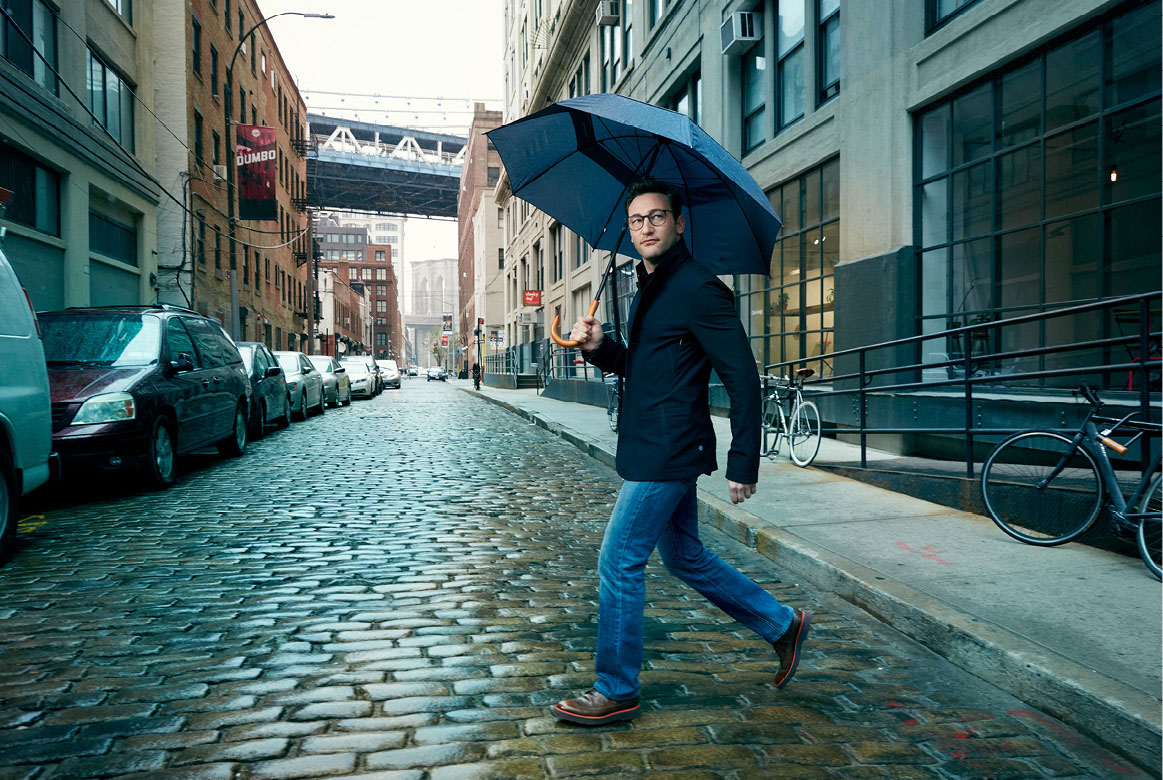
ROBERT ASCROFT
We have the same brain chemicals as our ancestors, and they’re released for the same types of reasons. He turns the page on the oversized notepad and starts a list. Endorphins, Sinek explains, mask physical pain. Dopamine comes naturally with a sense of accomplishment, he says, which can keep us focused on our goals. But it can be highly addictive, associated with drugs, alcohol, gambling and smartphone notifications. Serotonin is what he calls “the leadership chemical,” associated with pride and public recognition. Oxytocin, he explains, is associated with the good feeling you get when you’re with someone you trust. “It’s why we’re willing to make a handshake deal without a contract, but not a contract without a handshake.”
In hunting-and-gathering societies, the biggest and strongest could eat first. And the smaller guys “might be more willing to take an elbow in the face once in a while” if they knew that, when danger arrives, the bigger, stronger people would rush to defend the group. Leadership in our society works the same way, he says. If you’re the smartest or strongest—if you’re the leader—you might get the nicer office and the higher salary, but in exchange, it’s your responsibility to run toward danger.
Related: 5 Things Strong Leaders Do
“When your people believe that,” Sinek tells the crowd, “they love you.”
He says one of the most important sentiments any leader can express to someone in their charge is “I’ve got your back. There’s nothing you can break that I can’t help put back together. I believe in you even when you no longer believe in yourself.”
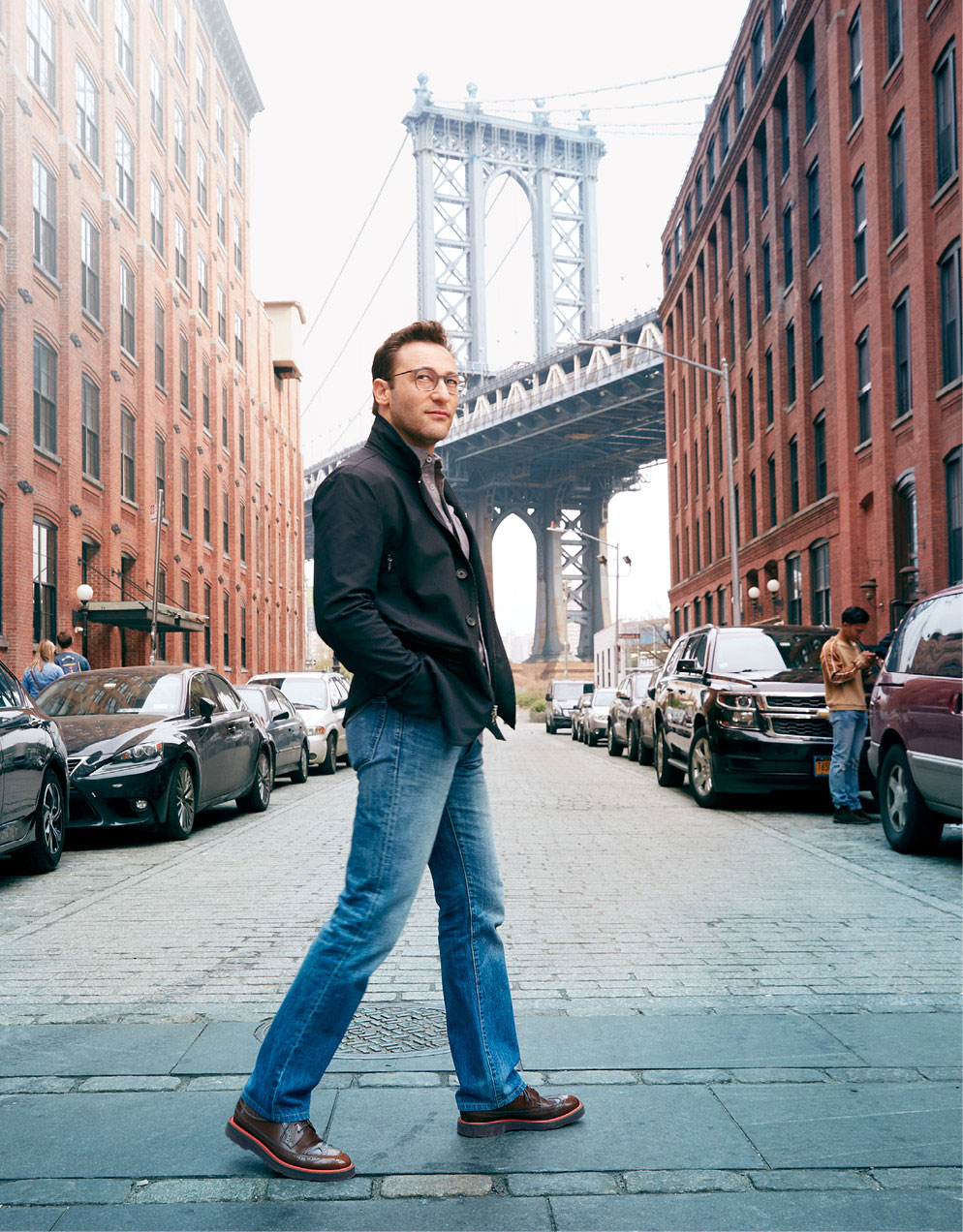
ROBERT ASCROFT
The audience is rapt. As he talks, I write in the margins of my notebook: very smooth delivery and very dramatic.
Then Sinek, standing in front of the American Airlines logo, on a stage facing hundreds of longtime American Airlines employees, adds this:
“That’s why people love flying Southwest.”
From the audience there are audible gasps.
***
Sinek was born in England, although he says his accent comes and goes depending on who he’s talking to. His parents encouraged him to follow what interested him. After taking a class called “Culture and Cognition” at Brandeis University in Massachusetts, Sinek decided to major in anthropology with a focus on the study of Western urban culture. “I was fascinated by the world in which I lived,” he says. Looking back, he says it’s “kind of the same thing” he does now.
He did his fieldwork in the mid-’90s with the Massachusetts State Police, in his words, “trying to understand the relationship between the police and public.” Sinek was an idealistic college student, and this wasn’t long after the Los Angeles riots, so he just wanted to find a way to make the world a better place. Some nights, he says, he donned a bulletproof vest, rode around with officers and even approached cars with them during traffic stops. (Ultimately he says he was disturbed by the way the public treated the cops he observed, by the number of people he saw yelling at the police for what seemed like no reason.)
After he graduated, he went to law school in London. He wanted to be a prosecutor, to “put bad guys in jail.” He liked making arguments, but he says he quickly decided that the culture there—where the label on your suit often matters more than the substance of your argument—wasn’t right for him. So he dropped out and, on the advice of a girlfriend at the time, got a job in advertising. Here his ability to explain things quickly and convincingly made him highly coveted. For five years, he moved up through the ranks of the industry, then started his own marketing firm. He had three more good years, followed by a very bad one.
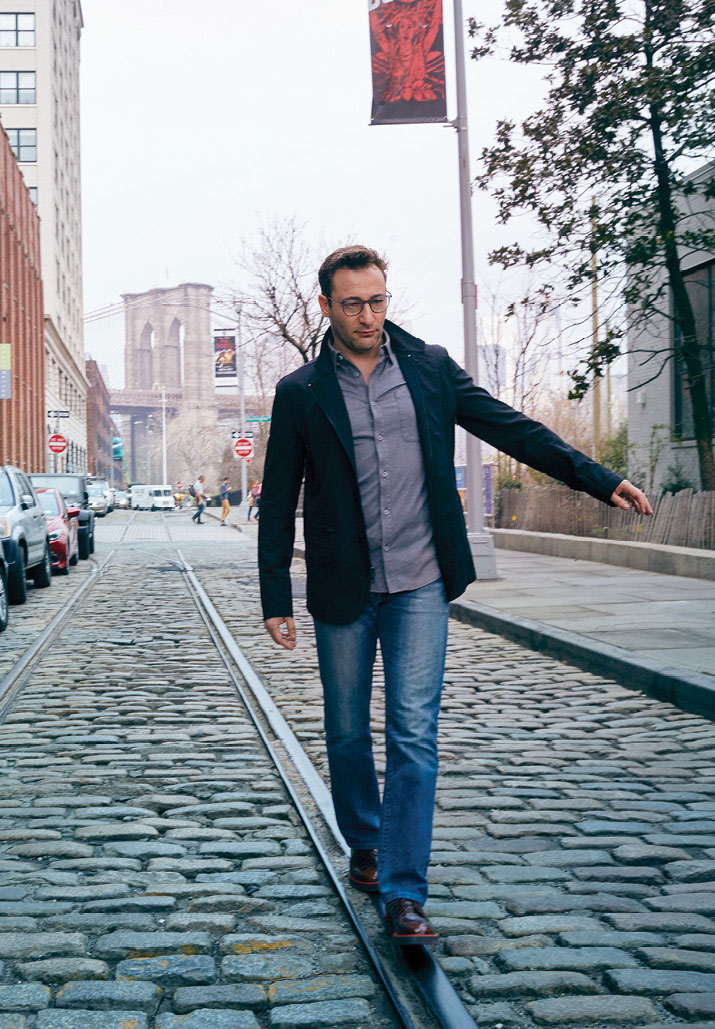
ROBERT ASCROFT
He says his vision is “a world in which the vast majority of people wake up every single morning inspired to go to work, feel safe when they’re there, and return home fulfilled at the end of the day.”
He noticed that he was spending a lot of time convincing other people that he was happy, that he had his life put together so nicely. But he wasn’t sleeping much, and he wasn’t socializing. “I wasn’t a good friend during that time,” he says.
Around the same time, he started reading about neuroscience. He started seeing patterns emerge, and he realized that these brain chemicals seemed to explain the types of things he was already doing in marketing and advertising. He developed a theory—when he talks about it, he says he “made a discovery”—and decided to test it on himself. So he got out of his lease and quit his business and thought more and more about why people do what they do. Why we buy what we buy and trust who we trust.
Related: Why Do You Do What You Do?
Everything, he decided, came down to purpose. We organize ourselves around the people and companies who seem to share our values, the same way our ancestors organized themselves into tribes. The best leaders are the ones who can express their fundamental why. In the 1960s, the civil rights movement coalesced around Martin Luther King Jr., Sinek theorizes, because he was best able to express his purpose—his why. Apple succeeded with a broad range of products when other tech companies struggled to branch out because Steve Jobs was always able to explain his corporation’s ethos.
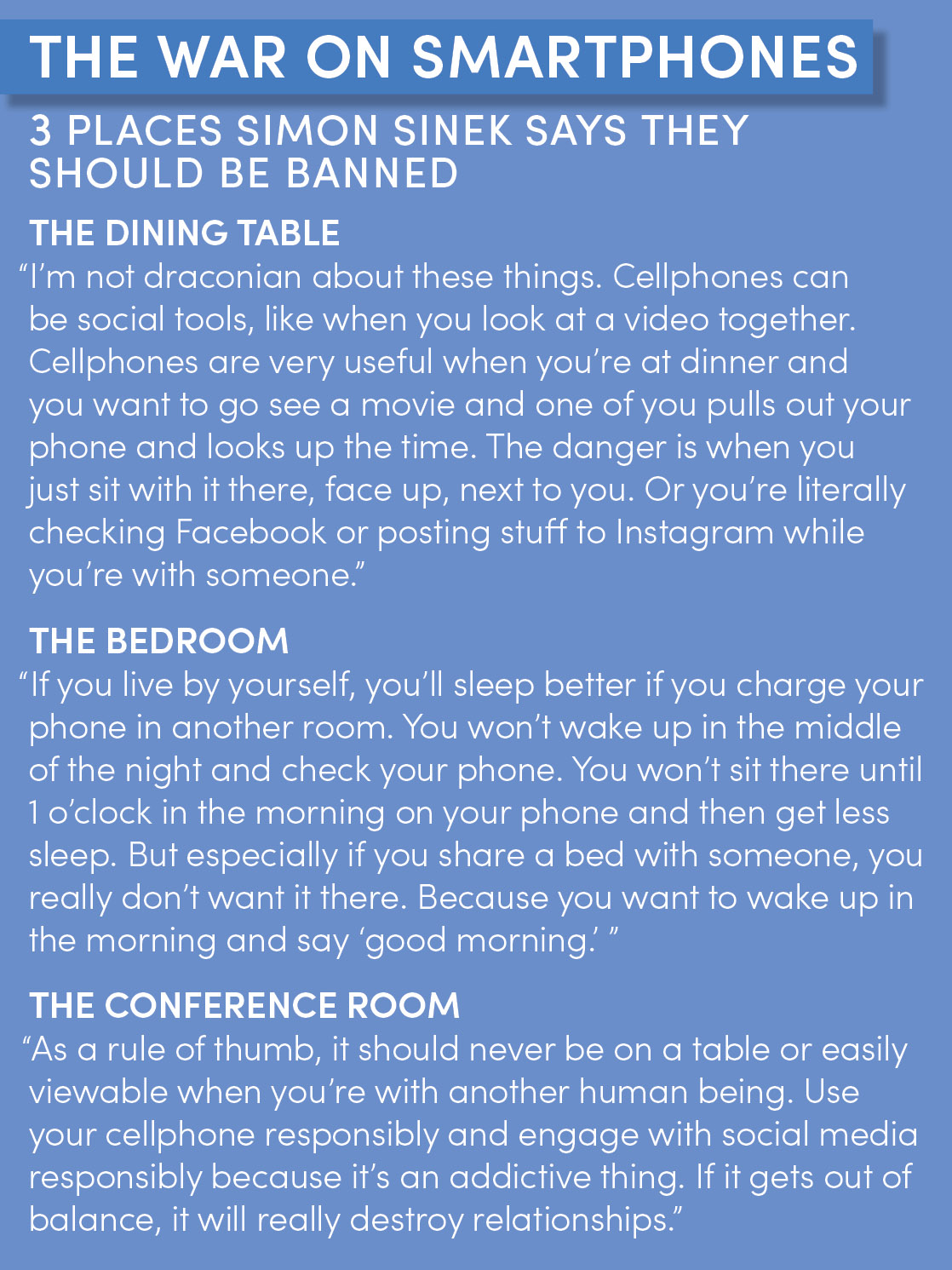
Sinek also argues that beginning in the 1980s, more and more businesses started “using humans to balance the books.” He cites specifically the influence of Jack Welch. In his 20 years as CEO of General Electric, Welch increased the value of the company exponentially, making it one of the biggest in the world when he retired in 2001. (Fortune magazine named him “Manager of the Century” in 1999.) But he was also notorious for the intense pressure he’d put on employees to perform at all costs. Anyone perceived to be underperforming was fired. And when profits dropped, there were mass layoffs. The entire corporate culture, which has been replicated often throughout the past quarter century, was structured around maximizing shareholder profit, which Sinek points out is a terrible way to lead any group of people.
He says he’s dedicated his life to undoing what Welch did to our society. Whether he’s writing books or speaking to companies or giving interviews, wants to inspire people. He says his vision is “a world in which the vast majority of people wake up every single morning inspired to go to work, feel safe when they’re there, and return home fulfilled at the end of the day.”
He tells companies to find employees who share their values and to empower them with trust. He tells them to create a culture where their people care about each other the way soldiers care about one another on the battlefield.

ROBERT ASCROFT, TAKEN AT AL MAR IN BROOKLYN, NEW YORK
The more Sinek talked about these ideas around his friends and former business associates, the more people started asking him to come talk about the same things in front of their co-workers and companies. At first, he says, he thought he was expected to donate any speaking fees. Soon, though, he realized he could make a living doing this, going to companies and convincing them to care more about their employees. The U.S. Air Force was one of the earliest adopters of his concepts.
These days he employs a team of 20 people, spread out across the U.S.
More and more, he says he sees his concepts replicated and repeated throughout society. It makes Sinek happy to think he might be making the world a better place.
***
The interview didn’t seem that different from the dozens of other interviews he’s done over the past decade or so. He sat down with Tom Bilyeu for a web talk show called Inside Quest. They talked for an hour about everything from the courage good leadership requires to the nontraditional metrics you might use for measuring a leader’s impact. But the discussion about millennials—what was originally a tangent to a different answer—was the part that spread. The topic only came up, Sinek says, because everywhere he speaks, he gets a question about millennials. That’s why he started researching the subject in the first place.
Related: 6 Habits of Highly Successful Millennials
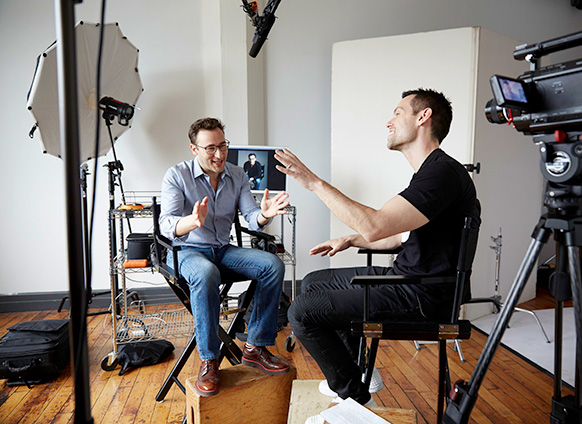
ROBERT ASCROFT
The full interview went online in late summer 2016, but it wasn’t until the week of New Year’s that the clip started flooding Facebook and Twitter feeds. Bilyeu, who co-founded Quest Nutrition, says he was shocked by how far and how fast the clip traveled.
“My first thought was this is crazy!” he tells me. “I couldn’t believe the velocity and scope of the clip’s virality. It really was nuts. My second thought was that it made sense.”
Bilyeu says he thinks the video resonated because Sinek succinctly summarizes not only one of the biggest potential problems facing the workforce—the incongruity of younger generations—but he also proposes solutions. Through the years, Sinek has repeatedly advocated for personal connections, the kind you just can’t make through a screen. He wants people to put away their phones and talk to each other. That’s something many of us can relate to, no matter our age.
“It seems obviously true to me that we’re living through a period of unprecedented technological change,” Bilyeu says. “This is bound to have an impact on people being born in the midst of it. I think Simon put a very fine point on the shifts in parenting, relationships to employers, and to the millennial generation’s mentality that this changing landscape has brought. While he made broad sweeping statements that couldn’t possibly hold up to each individual millennial, as a macro trend, I think his insights were very powerful.”
Although Sinek says he just started studying these questions over the past few years—interviewing millennials and their supervisors, reading the latest research—but so much of his career has built up to this. The Millennial Question allows Sinek to test a lot of the theories that have driven him for years: We have millions of disaffected but purpose-driven young people who need to be treated with respect and dignity, who need to be treated as individuals and not numbers. The only apparent solution is the approach Sinek has been suggesting since he quit his marketing job to talk about leadership full time. He believes industry now has the responsibility to make up for society’s shortfalls, to teach a new generation the patience required for fulfilling relationships and a rewarding work life.
As I read his books and spend time with him, I don’t necessarily agree with every part of his assessment of the younger generation. I don’t think millennials feel any more entitled than Gen-Xers or baby boomers. Yes, young people like ordering from Amazon Prime and binge-watching television, but those things don’t really prove that someone struggles with delayed gratification. In fact, it’d be faster to watch a show when it originally airs or to go to the store and buy something that day than to have it delivered a few days later. There’s also some inherent irony in a message that advocates unplugging from social media spreading so ubiquitously across social media.
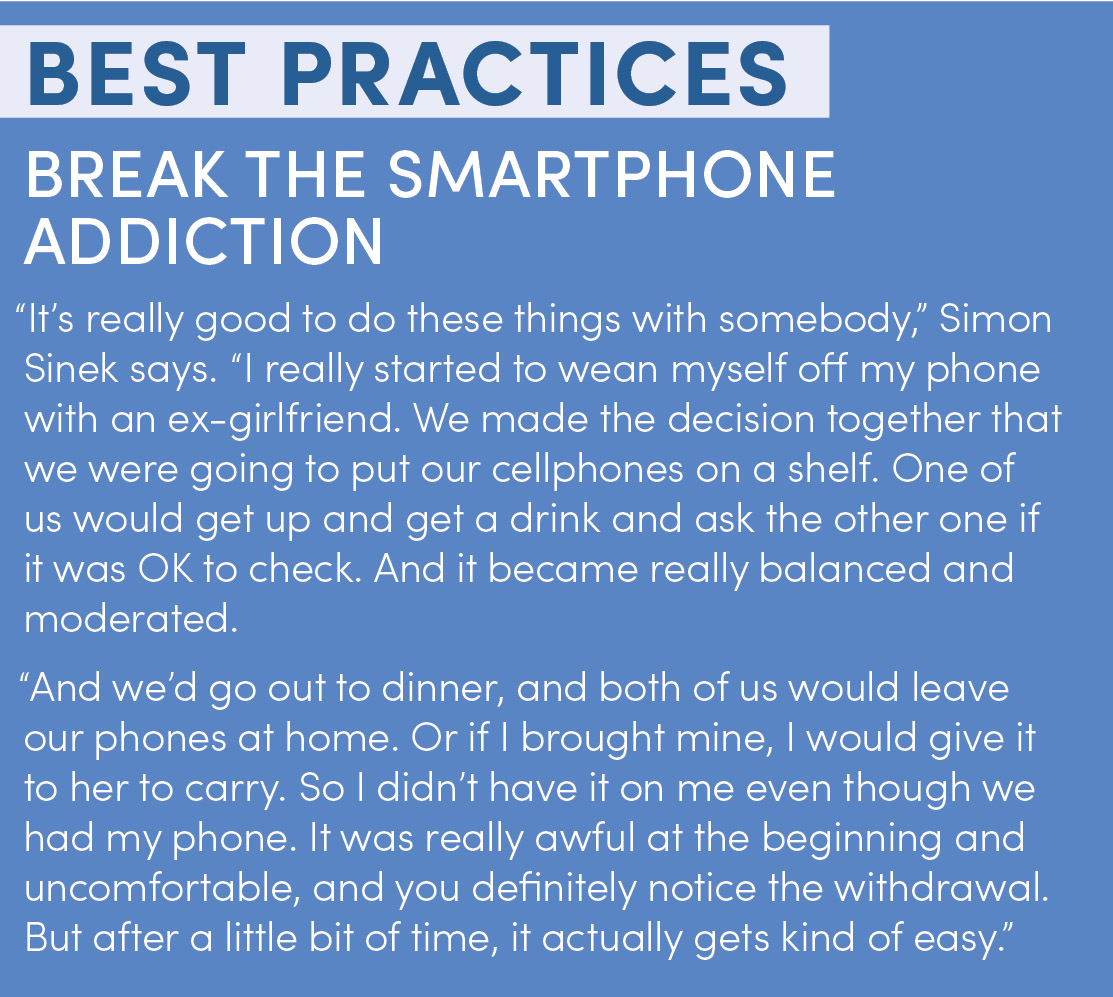
When Sinek is talking though, it’s impossible to argue with anything he says. It’s part of his genius. As he speaks, he infuses his concepts and explanations with short mini-scenes, conversations he acts out quickly to demonstrate an idea. He’ll pretend to be someone in a conference room, staring down at his phone and ignoring the people around him. Then seconds later, he’ll be two guys having a serious conversation about a sick parent—to show two hypothetical people building a deeper relationship with real connections because their phones are gone. The whole thing is entrancing and sometimes, without even realizing it, you’ll find yourself nodding along.
When Sinek is talking though, it’s impossible to argue with anything he says. It’s part of his genius.
Whether he’s onstage or chatting with old friends or lounging around his suite in the hotel, he’s disarming and funny and clever, but he also makes you feel like you’re in the presence of an erudite scholar. His confidence is intimidating. It’s also hard to disagree with someone who suggests people need to build deeper connections with more empathy. The world needs more, not less, of that.
Related: Why the Empathetic Leader Is the Best Leader
***
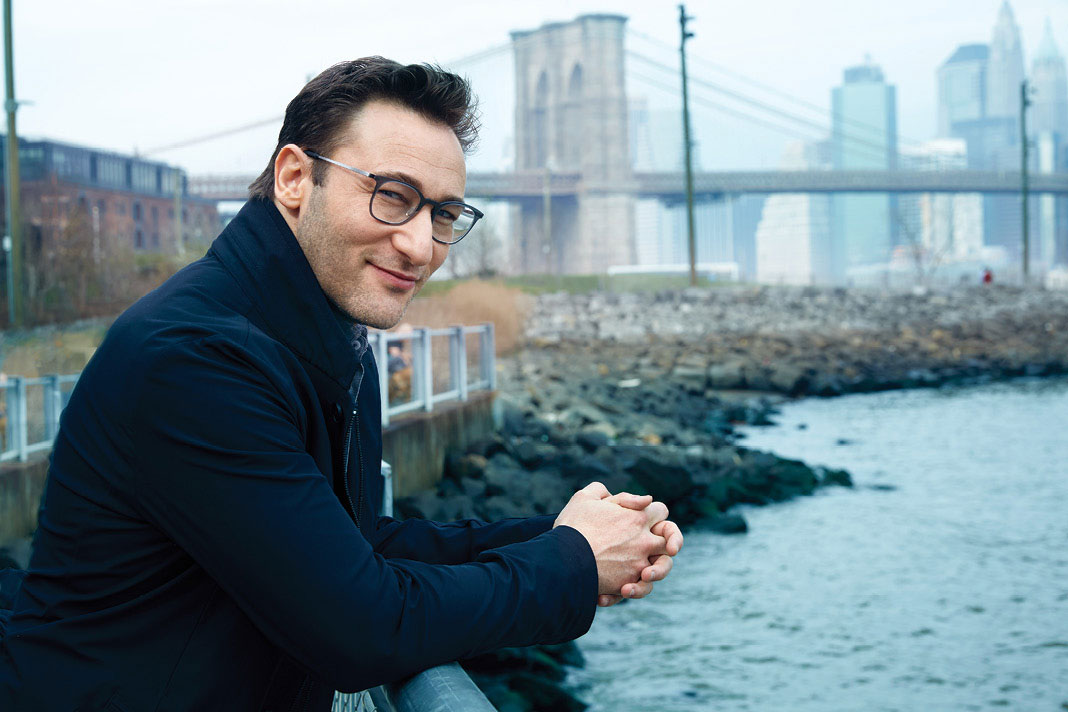
ROBERT ASCROFT
Back in the hotel ballroom, Sinek is still telling the room full of American Airlines managers why he thinks Southwest is more popular.
“It’s not that they have better people,” Sinek says from the stage. “It’s that their leaders trust them to know when to break the rules.”
He gives examples from incidents he’s seen flying around the country. Ticket agents who know when to give someone an upgrade. Gate agents who know when to let someone board early without upsetting the other passengers. Flight attendants who know when someone needs a free beer. Nobody’s afraid of getting fired for a mistake made in the name of helping a customer. A few recent public-relations blunders at other airlines could have been avoided—and the companies would have saved tens of millions in market value—if only the airline employees had felt empowered to do the right thing.
As his message has spread, Sinek says he does fewer of these types of corporate speaking engagements. He says he wants to spend more time at home in Manhattan and focus on his own personal relationships, a part of his life he says he’s neglected too long. He turns down 39 of every 40 speaking invitations he gets. (He doesn’t want to say exactly how much he earns from them, but he says he doesn’t mind charging big companies a lot of money because he works with the military for free.) Sinek says he won’t work with a company that just wants to raise its sales numbers; he has to know the executives believe in his philosophies.
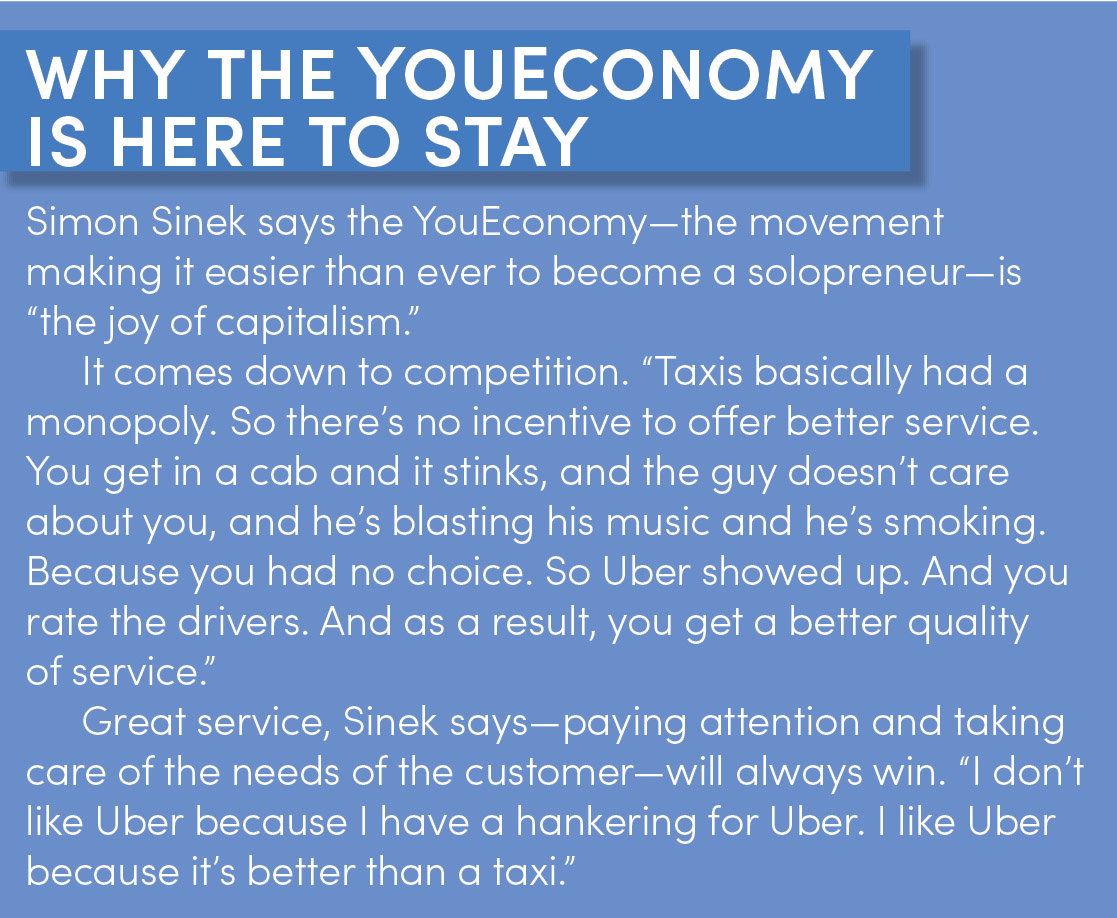
“We work with companies that call us up and say, ‘We’ve had many, many, many years of dysfunction and broken culture, and we want to do the right thing. We have new management in place and it’s a huge company. And we have some ideas, but we don’t have all the ideas. We know it’s going to be a long slog, and we want to do this. Can you come?’ It’s like, Oh my god. Absolutely!”
He says that’s essentially how he ended up talking to various groups of American Airlines employees over two weeks in Dallas. Now he’s telling the audience about a company where only the top executives are allowed to clean the office toilets.
“They treat it like a privilege,” Sinek says. Most of the audience members are taking notes or nodding or both. He tells them to be appreciative, even when things don’t go as planned. To adjust expectations as appropriate. He suggests for each to “become the leader you wish you had.” Then it’s time for questions and hands go up across the room.
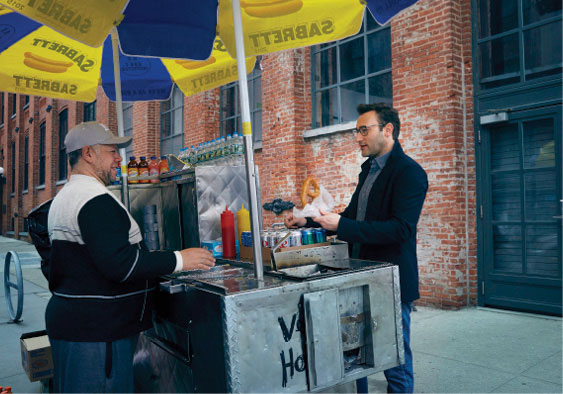
ROBERT ASCROFT
Someone asks about how he measures leadership. Sinek says the best measures are often “asymmetrical metrics.” How many sick days are employees taking? How many are being prescribed medication to treat depression. Someone else asks about different management styles. “Personality has nothing to do with leadership,” Sinek says. Some of the best leaders are notoriously nice. And some are notoriously not nice. “What matters is that they’re being themselves.”
He’s been onstage for nearly two hours when a woman in the back asks, “How can I get the most out of my people?” Sinek tells her abruptly that, as a leader, she’s asking the wrong question. “You need more empathy,” he says. “You need to take the time to find out what they need to do their job better. You need to be asking, ‘What can I do to help?’ ”
One of the most important sentiments any leader can express to someone in their charge is: “I’ve got your back.”
He pauses for a moment, and the room is quiet. Then he explains what he calls “the true test of leadership.” In many ways, it’s his entire doctrine—from his thoughts on purpose to his beliefs about tribalism and brain chemistry to what he says about millennials—boiled down to a single question. His voice is soft again.
“When you ask someone how they’re doing,” he says. “Do you actually care?
Related: Why a Compassionate Leader Gets Results
This article originally appeared in the August 2017 issue of SUCCESS magazine.



